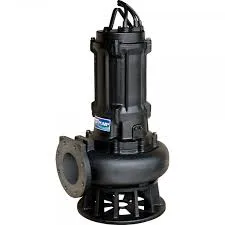English
- Afrikaans
- Albanian
- Amharic
- Arabic
- Armenian
- Azerbaijani
- Basque
- Belarusian
- Bengali
- Bosnian
- Bulgarian
- Catalan
- Cebuano
- Corsican
- Croatian
- Czech
- Danish
- Dutch
- English
- Esperanto
- Estonian
- Finnish
- French
- Frisian
- Galician
- Georgian
- German
- Greek
- Gujarati
- Haitian Creole
- hausa
- hawaiian
- Hebrew
- Hindi
- Miao
- Hungarian
- Icelandic
- igbo
- Indonesian
- irish
- Italian
- Japanese
- Javanese
- Kannada
- kazakh
- Khmer
- Rwandese
- Korean
- Kurdish
- Kyrgyz
- Lao
- Latin
- Latvian
- Lithuanian
- Luxembourgish
- Macedonian
- Malgashi
- Malay
- Malayalam
- Maltese
- Maori
- Marathi
- Mongolian
- Myanmar
- Nepali
- Norwegian
- Norwegian
- Occitan
- Pashto
- Persian
- Polish
- Portuguese
- Punjabi
- Romanian
- Russian
- Samoan
- Scottish Gaelic
- Serbian
- Sesotho
- Shona
- Sindhi
- Sinhala
- Slovak
- Slovenian
- Somali
- Spanish
- Sundanese
- Swahili
- Swedish
- Tagalog
- Tajik
- Tamil
- Tatar
- Telugu
- Thai
- Turkish
- Turkmen
- Ukrainian
- Urdu
- Uighur
- Uzbek
- Vietnamese
- Welsh
- Bantu
- Yiddish
- Yoruba
- Zulu
Telephone: +86 13120555503
Email: frank@cypump.com
Sep . 18, 2024 17:54 Back to list
waste tank pump
Understanding Waste Tank Pumps Functionality and Importance
Waste tank pumps play a crucial role in various industries, including wastewater treatment, manufacturing, and even residential waste management systems. Their primary function is to efficiently transport waste materials, prevent tank overflow, and maintain safe operational conditions. While often overlooked, these pumps are essential for keeping processes running smoothly and protecting the environment.
Functionality of Waste Tank Pumps
A waste tank pump is designed to move fluids containing solid and liquid waste from one location to another. They are available in different types, each optimized for specific applications, such as submersible pumps, centrifugal pumps, and diaphragm pumps. Submersible pumps, for example, are placed directly inside the waste tank and are effective for pumping out waste at considerable depths. Conversely, centrifugal pumps are typically installed above the tank and rely on centrifugal force to move the fluid.
The choice of pump depends on the nature of the waste being handled, the required flow rate, and the distance the waste needs to be transported. Key factors influencing this choice include the viscosity of the waste, the presence of solids or debris, and the pump's ability to handle corrosive or hazardous materials.
Importance in Waste Management
The significance of waste tank pumps cannot be overstated. In municipal wastewater treatment facilities, these pumps ensure that sewage and industrial waste are transported efficiently to treatment plants, preventing environmental contamination. By effectively managing waste flow, these pumps help mitigate flooding and reduce the risk of toxins leaching into groundwater.
waste tank pump

In industrial settings, waste tank pumps are vital for maintaining operational efficiency
. They help collect and remove byproducts from manufacturing processes, which can be critical in industries like food processing, pharmaceuticals, and chemical manufacturing. An inefficient waste management system can lead to costly downtime, regulatory penalties, and even significant environmental harm.Moreover, waste tank pumps contribute to public health and safety. By ensuring that waste is processed and disposed of correctly, they prevent the buildup of harmful substances that can pose risks to both human health and the environment. Proper maintenance and operation of these pumps are essential to avoid blockages or failures that could lead to spills or leaks.
Technology Advancements
With advancements in technology, modern waste tank pumps are equipped with features that enhance their efficiency and reliability. Many pumps now come with sensors that monitor flow rates, pump performance, and maintenance needs. This real-time data allows operators to optimize the pumping process, reduce energy consumption, and schedule timely maintenance to avoid unexpected failures.
Additionally, the integration of smart technology and automation is transforming how waste management systems operate. Automated waste pumps can be controlled remotely, allowing operators to make real-time adjustments based on system performance or environmental conditions. This leads to improved safety, efficiency, and compliance with regulatory standards.
Conclusion
In summary, waste tank pumps are integral to effective waste management across various sectors. Their ability to efficiently transport waste not only protects the environment but also ensures operational efficiency and public safety. As technology continues to evolve, the future of waste tank pumping systems looks promising, with innovations that will further enhance their functionality and reliability. Recognizing the importance of these pumps is essential for those responsible for waste management, whether in industrial, municipal, or residential contexts.
-
ISG Series Vertical Pipeline Pump - Chi Yuan Pumps Co., LTD.
NewsJul.30,2025
-
ISG Series Vertical Pipeline Pump - Chi Yuan Pumps Co., LTD.|energy-efficient fluid handling&industrial durability
NewsJul.30,2025
-
ISG Series Vertical Pipeline Pump - Chi Yuan Pumps | Advanced Engineering&Industrial Efficiency
NewsJul.30,2025
-
ISG Series Pipeline Pump - Chi Yuan Pumps | High Efficiency, Energy Saving
NewsJul.30,2025
-
ISG Series Vertical Pipeline Pump-Chi Yuan Pumps|High Efficiency&Reliable Performance
NewsJul.29,2025
-
ISG Series Vertical Pipeline Pump|High Efficiency&Low Noise
NewsJul.29,2025










